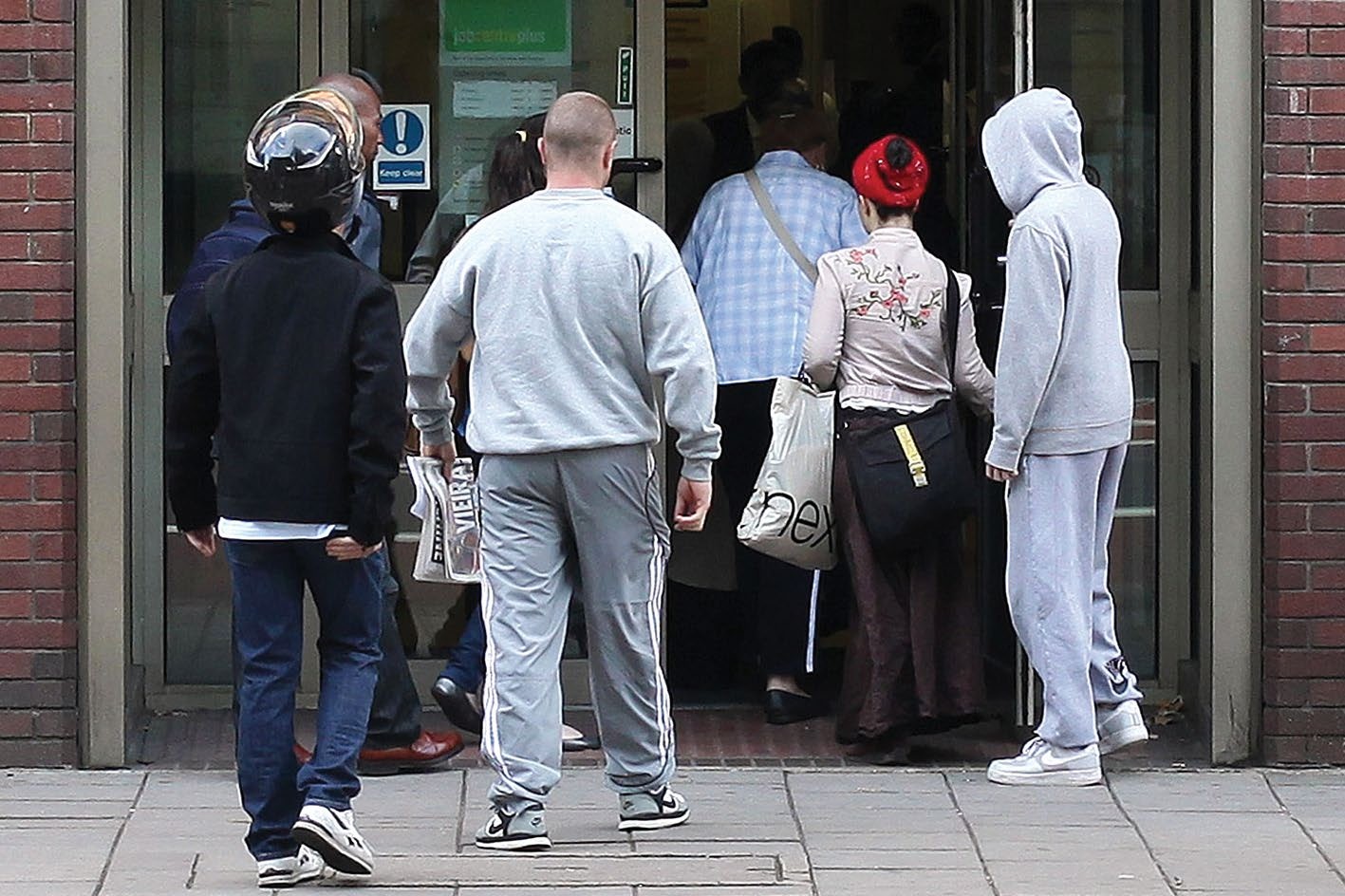What is the future of Royal Mail in the UK?
With fewer of us sending letters and parcels, the Royal Mail is finding dealing with the nation’s post is an increasingly unprofitable and costly business.

Get the latest financial news, insights and expert analysis from our award-winning MoneyWeek team, to help you understand what really matters when it comes to your finances.
You are now subscribed
Your newsletter sign-up was successful
Want to add more newsletters?
The days of six-days-a-week postal deliveries to all 32 million addresses across the UK are looking more shaky than ever after the communications regulator Ofcom unveiled its proposals for Royal Mail reform.
The number of letters we send each year has slumped from 20 billion two decades ago to just seven billion now and is predicted to shrink further. That means the Royal Mail’s commitment to “universal service” is “getting out of date and will become unsustainable if we don’t take action”, according to Ofcom boss Melanie Dawes.
The options proposed by the regulator include cutting delivery days from six to five (scrapping Saturday deliveries) or even three; or changing the model entirely by merging first and second class into a new, slower service, but with a super-premium charge for urgent next-day delivery.
Try 6 free issues of MoneyWeek today
Get unparalleled financial insight, analysis and expert opinion you can profit from.

Sign up to Money Morning
Don't miss the latest investment and personal finances news, market analysis, plus money-saving tips with our free twice-daily newsletter
Don't miss the latest investment and personal finances news, market analysis, plus money-saving tips with our free twice-daily newsletter
Who owns Royal Mail?
Royal Mail Group Ltd, trading as Royal Mail, is a subsidiary of International Distributions Services, a stock market listed holding company that also owns Parcelforce Worldwide and GLS Group, which operates in Europe and North America.
For most of its history, it was a public service, but it was privatised by the coalition government in 2013, having been legally separated from the Post Office the year before.
The government kept a 30% stake in Royal Mail, but sold its remaining shares (at a profit) in 2015, ending 499 years of state ownership. Then, in 2022, Royal Mail changed its name to the unlovely International Distributions Services.
How has Royal Mail done as a business?
Overall, it’s lost its shareholders money. The initial float price was 330p, a significant under-pricing: it closed at 455p on the opening day. The peak price, in 2018, was above 630p, and it nearly hit the 600p mark again in 2021.
But it’s currently trading at less than half that, around 276p, and is worth less now than at IPO.
As such, many commentators would accuse it of “squandering the financial legacy it was bequeathed at privatisation”, says Andrew Ellison in The Times.
When it was flogged off, the government sweetened the deal for investors by relieving Royal Mail of nearly $40billion in pension obligations and gifting it ownership of public property worth hundreds of millions of pounds.
Since 2013, the firm has sold land worth at least £415million. Critics accuse it of not investing enough in transforming the business to take advantage of the boom in internet shopping and parcel deliveries.
Meanwhile, the company has paid out nearly £2billion in dividends since 2013, and in 2022 it spent more than £200million on buying its own shares in the hope of propping up the price.
Is Royal Mail failing financially?
Under the terms of its deal with the government, Royal Mail – which reported losses of £169million in the first half of its financial year – is required to deliver 93% of first-class post the next working day, and 98.5% of second-class within three days. But in 2022-23 it managed only 73.7% on the first-class metric, and 90.7% on the second class – earning it a £5.6million fine.
According to the company’s chairman, Keith Williams, the core issue is the slump in volume.
On average, Royal Mail now delivers only about four letters per address each week. The crucial factor, largely unspoken, is that the universal service obligation makes it hard to cut the gigantic staff costs of £5billion for 150,000 people.
Without reform of the regulatory system, or a subsidy, “we are stuck in a vicious spiral leading to heavy losses and an unsustainable service”, says Williams – who is paid £311,000 a year for a commitment of at least two days a week. He also chairs Halfords. Most comparable countries ended the universal guarantee years ago, he says. It’s time to do the same here.
Postal services in Europe: are they any better?
Currently, the only two nations in Europe with a six-day-a-week next-day letter service are the UK and Malta.
In Malta, it costs 50p, compared with £1.25 here (following years of hefty above-inflation rises), but then this country is 771 times the size of the island statelet.
In France, the state-backed La Poste cut its service levels last year. Letter deliveries that took two days to arrive were switched to three, and a hybrid “e-letter” format was introduced for urgent delivery: customers type their letter online, and it then gets printed out close to its destination and delivered overnight.
Germany is easing its regulatory requirements in a way that in effect ends guaranteed next-day deliveries.
And Denmark, which has been pushing people online for all official communications since 2012, now has the most limited service in Europe, with deliveries just one day a week.
Next steps for Royal Mail
Two of Ofcom’s options were slapped down before they were even published. Rishi Sunak made clear he “will not countenance” scrapping postal deliveries on Saturdays (in part due to the impact on businesses, including publishers).
So if the five-day and three-day options are non-starters for now, that leaves Ofcom’s “snail mail” proposal, says Nils Pratley in The Guardian: making the bulk of deliveries a standard service that takes “up to three days or longer”, plus an expensive premium service for next-day delivery.
But customers “should be deeply suspicious” of this “slow-plus premium” model, which might just mean a much slower second-class service and a vastly more expensive first-class one.
The commitment to three days “or longer” is as vague as it gets. And Ofcom’s enormously wide estimate of the savings to Royal Mail – anything from £150million to £650million – suggests a sketchy plan with very loose costings.
Five-days-a-week delivery would yield savings of £100million-£200million, and could be the “least bad compromise”.
Ofcom’s public consultation runs until 3 April 2024, with decisions due “in the summer”.
This article was first published in MoneyWeek's magazine. Enjoy exclusive early access to news, opinion and analysis from our team of financial experts with a MoneyWeek subscription.
Get the latest financial news, insights and expert analysis from our award-winning MoneyWeek team, to help you understand what really matters when it comes to your finances.
-
 UK small-cap stocks ‘are ready to run’
UK small-cap stocks ‘are ready to run’Opinion UK small-cap stocks could be set for a multi-year bull market, with recent strong performance outstripping the large-cap indices
-
 The scourge of youth unemployment in Britain
The scourge of youth unemployment in BritainYouth unemployment in Britain is the worst it’s been for more than a decade. Something dramatic seems to have changed in the labour markets. What is it?
-
 In defence of GDP, the much-maligned measure of growth
In defence of GDP, the much-maligned measure of growthGDP doesn’t measure what we should care about, say critics. Is that true?
-
 Reach for the stars to boost Britain's space industry
Reach for the stars to boost Britain's space industryopinion We can’t afford to neglect Britain's space industry. Unfortunately, the government is taking completely the wrong approach, says Matthew Lynn
-
 "Botched" Brexit: should Britain rejoin the EU?
"Botched" Brexit: should Britain rejoin the EU?Brexit did not go perfectly nor disastrously. It’s not worth continuing the fight over the issue, says Julian Jessop
-
 'AI is the real deal – it will change our world in more ways than we can imagine'
'AI is the real deal – it will change our world in more ways than we can imagine'Interview Rob Arnott of Research Affiliates talks to Andrew Van Sickle about the AI bubble, the impact of tariffs on inflation and the outlook for gold and China
-
 Tony Blair's terrible legacy sees Britain still suffering
Tony Blair's terrible legacy sees Britain still sufferingOpinion Max King highlights ten ways in which Tony Blair's government sowed the seeds of Britain’s subsequent poor performance and many of its current problems
-
 How a dovish Federal Reserve could affect you
How a dovish Federal Reserve could affect youTrump’s pick for the US Federal Reserve is not so much of a yes-man as his rival, but interest rates will still come down quickly, says Cris Sholto Heaton

